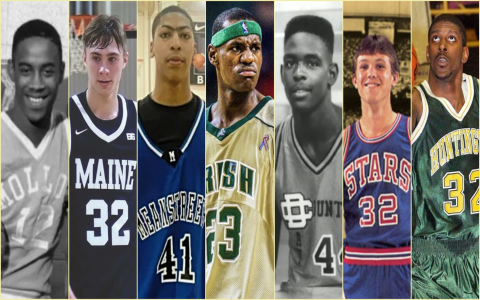So yesterday I got curious about how Minnesota high school basketball teams get ranked for 2025. You see all these lists online, right? But nobody really explains how they cook it up. I figured, hey, let’s dig in and see what’s actually going on behind the curtain.

Starting Simple, Hitting Walls
First thing I did was what anyone would do. I googled “Minnesota HS basketball rankings 2025 how they work.” Big surprise, nothing clear popped up. Just more lists, some articles talking about specific teams moving up or down, but zero details on the actual recipe. Frustrating. Felt like everyone was just copying each other or guessing.
I thought maybe the official high school league website would have the answer. You know, the MSHSL folks. Spent a good hour clicking around their site. Found rules, schedules, tournament info – tons of stuff. But a clear explanation of how teams get ranked? Nada. Zip. They don’t even publish official rankings themselves! It’s all done by media outlets or random groups. That kinda blew my mind.
Chasing Down the Sources
Okay, plan B. Since the league doesn’t do it, who does? I started looking at the websites actually putting out these 2025 rankings. Found a few of the big ones – local newspapers, sports networks, some independent sites dedicated to prep sports. Each one usually has a little “About” section or maybe a note somewhere.
Here’s where it got messy. I started reading those little blurbs and realized:
- No two places do it the same way. Seriously, everyone has their own secret sauce.
- It’s mostly humans making calls. Not some fancy computer algorithm spitting out numbers. Actual people – reporters, coaches, “experts” – sit around and argue about it.
- They look at stuff, but it’s vague. They mention things like:
- Win-loss record (obviously, but how much does a close loss count vs a blowout win?).
- Strength of schedule (who did you beat? who beat you?).
- Head-to-head results (if Team A beat Team B, Team A should probably be higher, right?).
- “Quality wins” (beating a top team counts more than crushing a nobody).
- Recent performance (are you hot right now or falling apart?).
But here’s the kicker: nobody gives weights to this stuff. Is a win against a tough team worth twice as much as a loss to them? Who knows! It’s all gut feeling for those folks sitting around the table.
The Ugly Truth and My Big Realization
After banging my head against this for a few hours, the picture became painfully clear. Minnesota HS basketball rankings for 2025, or honestly any year, aren’t science. They’re opinions. Educated guesses? Maybe. Influenced by watching games and knowing the scene? Hopefully. But still, just opinions gathered together.
It explained why rankings sometimes look crazy or change so fast. One panel might value recent wins way more than another. One group might be super impressed by a big win against a name team, even if that name team is having a down year. Politics? Reputation? Yeah, probably sneaks in there too. Human stuff.
The biggest lightbulb moment? Realizing there’s no single authority, no agreed-upon formula. That “Minnesota HS Hoops Rankings 2025” headline you see? It only means something based on who published it and their specific group’s methods and biases. One outlet’s #1 might be #5 somewhere else, and neither is necessarily “wrong.”
Wrapping Up My Deep Dive
So, what did I learn? I learned to take these rankings with a massive grain of salt. They’re fun to talk about, great for sparking arguments, and maybe give a rough idea of who’s strong. But they are absolutely not some objective, calculated truth. They’re a bunch of people looking at similar information and then voting or debating based on their own perspectives.
My advice now? Enjoy the debate they create, follow the teams you love, but don’t get too hung up on whether your team is #3 or #4 on some list. Because honestly, that #3 spot? It might just mean one guy on a panel really liked their point guard last Tuesday. The whole thing is way more art than science, and way more human opinion than cold, hard stats.
